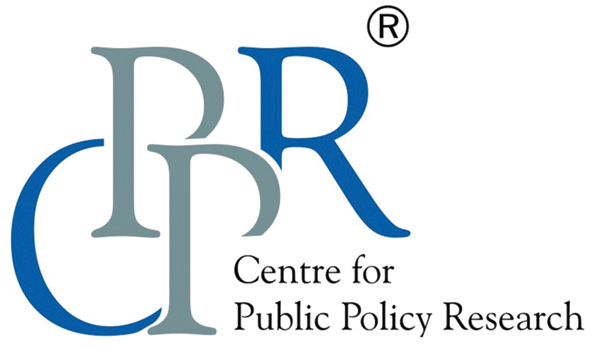Articles
By D.Dhanuraj
These days, budget discussions are one of the media favourites, especially for the visual media because of its ability for creating a buzz easily across the various segments of the society. Kerala Budget 2013 is the latest one presented and hence discussed.
I have watched many budget discussions where I could see experts arguing on the merits and demerits of this budget. I feel the discussions so far have knowingly or unknowingly missed the bigger picture. The experts in the discussions seemed to have ignored the lack of vision in the present budget.
Following is a random compilation of my observations, as a policy analyst, of the Kerala Budget 2013.
The Economic Survey 2012
The Economic Surveys released every year just before the day of budget presentations gives an insight to the economy in the previous year.The Economic Survey 2012 says, “Unproductive revenue expenditure should be reduced and capital expenditure should be encouraged”.It also says that Kerala has achieved a GSDP growth of 9.58 % but Kerala’s unemployment rate is alarmingly at 9.9 %.The Public debt of Kerala is third highest in the country with West Bengal and Punjab ranked first and second respectively in the Public Debt table.
Among the states with the highest unemployment rates,the survey ranks Kerala along with the smaller states like Goa, Tripura and Sikkim.The survey also reveals that the revenue deficit of Kerala is at a manageable level for the last two years.These figures show that Kerala has lot to do with the management of economy and improving the financial propositions to sustain the existing Goodies in the Kerala Model of development
I will take care of all: Kerala Budget 2013
Many perceive Budget 2013 is a welcome sign for the future (or at least Finance Minister says so). The reasons cited include the allocation for the Agriculture, hike in pension, generous allocation for the cultural trusts, skill training etc.
But I felt there are reasons to be cautious in the allocations for various sectors. It gives me an impression that the Finance Minister has tried to appease all the coalition partners and more importantly designed the budget with a view on the next general elections.
Ultimately, what has happened is that by trying to have too many projects at a time, the budget allocation for each project got dwindled. This would result in wastage of resources as the beneficiaries find it difficult to meet the required traction of spending to make the projects sustainable in the first year itself.
Skill training is a welcome suggestion in the budget, but again has received limited finance. The mechanism to improve the quality of the higher education is planned by encouraging the academic writing of the teachers. There is no mention on the basic issues of the low quality of education imparted.
Regional disparities in this budget are huge. Though Ernakulum district collects more than Rs. 10, 000 Crores in the form of tax to the exchequer, what the city has received from the Budget is peanuts. One estimate is that four fly overs’ construction in Cochin demands Rs. 1500 crores where as the present budget allocates a meagre amount of Rs. 846 crores for the infrastructure development of the entire State.
The attempt of Government of Kerala, ‘Emerging Kerala’, to attract investors, showed that there are many investors interested to invest here. All of them had the common demand of uninterrupted and quality power supply and better infrastructure facilities for transportation. But the budget has completely neglected both the sectors.
The revenue collection more or less depends on VAT and the tax on liquor and cigarettes. The Finance Minister has not tried to widen the tax net nor improve the efficiency in the tax collection.
There is a tax proposed to prevent bullish trades in real estate. In my opinion it is akin to the hike in import duty propsed by Central Government on Gold. In fact, in Kerala Gold and Real Estate are the two major investment options for the Non Resident Keralites.
In the previous financial year, more than Rs. 60,000 crores was the remittance from abroad. Sadly, the Budget is silent on the ways in which this money can be utilised for the productive works and development of Kerala.
The Second Generation issues such as ‘quality of education or healthcare’ faced by Kerala are touched here and there but not comprehensively.
There is no mention for the private investment in Kerala in the budget. When the unemployment rate is at its peak, the Government considers itself as the sole employer even in the 21st century.
The Public Sector Undertakings (PSUs) of Kerala have been in a bad shape for a long time but this Budget is silent in that aspect.
The Finance Minister has been vociferous about the double digit growth of Kerala economy. In fact, he dreams Kerala’s growth will be faster than that of China’s. I strongly believe that such kind of growth for Kerala if it really occurs will be a bubble waiting to burst.
Without the improvement in Kerala’s infrastructure and productive asset creation, the economy will slow down in the coming years.
The present Kerala budget is a welfare statement and looks like a stimulus package in recession times. Funds are allocated in too many unproductive projects. Lord Keynes shall be happy with this model where high volume remittance in the banks of Kerala keep the lending and credit business happy to sustain the present growth. What we require is the distribution and lending of resources in more productive and regenerative ways. Rather than a performance based budget we shall shift to an outcome based budget for a sustainable economy.

Dr Dhanuraj is the Chairman of CPPR. His core areas of expertise are in international relations, urbanisation, urban transport & infrastructure, education, health, livelihood, law, and election analysis. He can be contacted by email at [email protected] or on Twitter @dhanuraj.




